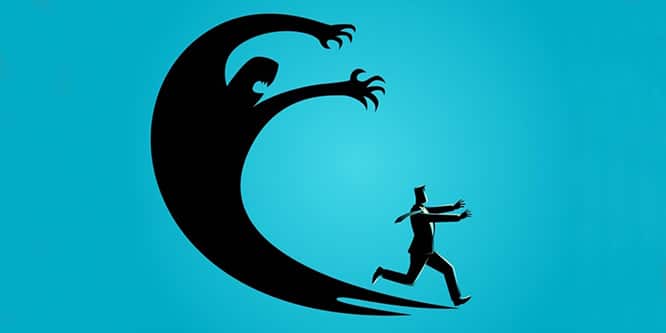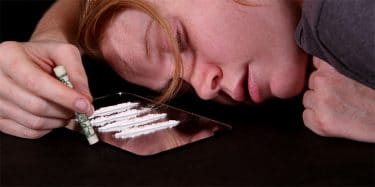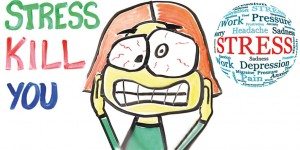Anxiety disorder is a very common psychological disorder which affects more and more people. Every person can feel anxious sometimes. However, if it usually occurs without a reason, does not diminish soon, and affect our daily lives negatively, it is called anxiety disorder. Anxiety disorder can be caused by genetic susceptibility, medical reasons and stressful life events. Treatment aims to eliminate symptoms such as severe anxiety, palpitations, trembling and sweating; and also, to make people gain effective coping mechanisms. People with anxiety disorder should not avoid asking for a professional help, and they should have some life style changes. Considering experts’ suggestions, having psychotherapy, -if necessary- using medications and compliance to treatment is very essential.
Table of Contents
What is anxiety?
Anxiety is a natural reaction that our body gives to stress. Every person can feel anxious at some points of their lives. When we encounter a stressful situation, usually our heart and breathing race. According to our automatic evaluation of whether we can handle the situation or not, our body gets prepared to either fight or flight. With racing heart, our body starts to pump more blood to our muscles.
Even though it is a natural reaction, if it occurs without a reason and very often, continues even after the threat is gone, and affects our school, work or social lives, it becomes something that needs to be treated. This condition is called anxiety disorder.
Causes of anxiety
Causes of it are not certain yet. Imbalance of neurotransmitters called serotonin and norepinephrine are thought to be responsible for it. However, reasons behind this imbalance are not known yet, and researchers state that it occurs due to many factors such as genetic susceptibility, medical reasons and stressful or traumatic life events.
Medical causes
Studies show that some medical conditions are related to anxiety disorder. Here are some conditions:
- Diseases related to thyroid-mostly hyperthyroid
- Diabetes
- Heart diseases
- Respiratory diseases
- Menopause
- Abuse of or withdrawal from drugs
- Withdrawal from alcohol
- Chronic pain or irritable bowel syndrome
- Some tumors sending fight or flight signals to brain
If,
- You do not have a family member with anxiety disorder,
- You have not experienced it in your childhood,
- You do not have the tendency to avoid certain circumstances,
- And you have a sudden anxiety disorder that cannot be explained by your life events,
it is likely that your anxiety disorder has a medical cause.
Other reasons and risk factors
- Genetic susceptibility caused by DNA mutations
- Having a family member with it
- Parents’ controlling attitudes and behaviors
- Stressful live events, especially in childhood, such as loss of parents; physical, emotional or sexual abuse; neglect
- Presence of other psychological disorders like depression
- Having a stressful job and an intense work pressure
- Being female – Women have almost twice more anxiety disorder than men.
Symptoms of Anxiety
- Feeling tense, nervous or irritable
- Expectancy of a bad thing or panicking
- Increasing heart rate and breathing, palpitations, or chest tightness
- Sweating
- Trembling
- Feeling weak and exhausted
- Back pain
- Dizziness
- Difficulty in focusing on anything other than anxiety
- Sleeplessness
- Gas, constipation and diarrhea
- Difficulty in controlling anxiety
- Wish to avoid conditions causing anxiety
It can show some different symptoms according to their types.
Diagnosis of anxiety disorder
If your anxiety exceeds normal levels and starts to impair your daily functioning, it means that it is time to see an expert.
Experts can conduct some psychological tests after listening your complaints, and compare the results with symptoms in diagnostic criteria systems. They can ask you to identify your thoughts, feelings and behaviors in order to understand your condition more clearly. In some cases, people can go to doctors with some physical complaints, but the actual problem is anxiety.
In these cases, your doctor can ask you to have some blood tests or physical examinations to eliminate the possibility of a medical condition. If your anxiety is not focused on one specific thing or condition, rather a broad feeling, and continues more than six months; you are likely to have a generalized anxiety disorder diagnosis.
Anxiety test
Anxiety disorder cannot be detected by using only one test. Experts make a diagnosis considering the results of physical examinations, psychological tests and evaluations. Beck Anxiety Inventory is one of the most commonly used scales, and it has 21 items aiming to measure how often and how severely you experience it.
Types of Anxiety
It has several different types. All types have an extreme anxiety and fear caused by a real or a perceived threat. Some types are listed below:
Social anxiety disorder (Social phobia)
It is an extreme sense of fear of being in social occasions, being criticized and humiliated in those occasions. Being in such environments can cause palpitations, sweating and trembling. This fear is mostly irrational; yet still, people with social phobia can avoid social meetings because of extreme fear and anxiety.
Generalized anxiety disorder (GAD)
It is one of the most common psychological disorders. People with GAD have usually a continuous and uncontrollable anxiety and disturbance. They usually have difficulty to identify the source of anxiety. They can believe they will fail at school, be fired from work or live through a catastrophic event with no obvious reason.
Exhaustion, quick temper, irritability, difficulty to concentrate, muscle pains, headaches, difficulty in swallowing, sense of suffocation, sweating continuously, frequent need to urinate and sleep problems are most frequent symptoms.
Panic disorder (Episodic paroxysmal anxiety)
Panic disorder is the condition occurring with recurrent panic attacks with feelings of intense anxiety, fear and terror. People with panic disorder can experience sweating, difficulty to breath, increased heart rate and sense of terror; and these sensations peak in minutes. People can be possessed by the fear of death.
Most people can have panic attacks once or twice in their lives. However, panic disorder occurs when panic attacks recur continuously; it should not be confused by panic attacks.
Agoraphobia
Agoraphobia is the condition in which people have a great fear of being in the places and conditions that they believe they will not get help if something bad happens and they cannot run out. It is usually considered as fear of being in open and crowded places.
Yet, people with agoraphobia avoid and fear of using public transportation, going to malls, waiting in a queue, and in some cases, even leaving home. Agoraphobia can be observed with panic disorder.
Post-traumatic stress disorder (PTSD)
PTSD is an intense anxiety condition in which people perceive a threat against their or their close ones’ lives or body integrity. These conditions may be natural disasters, accidents, wars, physical or sexual assaults. People with PTSD have a continuous sense of threat even if there is no real threat anymore.
They can re-experience the traumatic event with flash-backs and dreams, avoid reminders and have difficulty to remember the details of event. Some symptoms are irritability, difficulty in concentration, being easily startled and sleep problems. These people can have a severe sense of guilt and anxiety, and they can avoid activities that they can enjoy. It is very likely that people with PTSD can have depression, too.
Obsessive compulsive disorder (OCD)
Obsessive compulsive disorder is a combination of recurrent, persistent and anxiety provoking thoughts and impulses (obsessions), and performing certain recurrent behaviors in order to relieve those thoughts and anxiety (compulsions). It usually starts in adolescence, and it is more common in women. Symptoms can change depending on the culture.
The most frequently seen OCD types are listed below:
- Infection obsession and cleaning compulsion: An extreme fear and anxiety of contamination and as a result, cleaning extremely
- Doubt obsession and control compulsion: Checking frequently whether the door is looked or iron is plugged out; staying away from knives to guarantee that they will not hurt loved ones because they are afraid of that they can
- Symmetry obsessions and compulsions: Changing the places of objects to make them symmetrical
- Touching and counting compulsions: Believing that something bad will happen if they do not touch or do something in a certain number of times
- Hoarding and saving compulsions: Saving useless things by thinking that it may be needed on some day
Having superstitious beliefs, lucky numbers or colors can be evaluated as OCD if they impair daily lives. Every person can have some obsessive thoughts or behaviors for control and preventions. The important point is that these behaviors should not affect our lives negatively.
Panic attacks
Panic attacks are sudden episodes of panic, fear and terror. Chest tightness, palpitations, sweating, trembling, dizziness, nausea, sense of losing control and fear of death are typical symptoms. Panic attacks start suddenly, they peak in 10 minutes, and diminish slowly in 10-30 minutes. Rarely, they can last for around an hour, too. During attacks, people can think that they are going to die, but this fear does not have a realistic base.
Anxiety crises and attacks
Although anxiety attacks can be confused with panic attacks, they do not occur without a reason. They are caused by an expectancy of a worrisome event and they occur gradually. Anxiety attacks can cause irritability and stress, which are not symptoms of panic attacks; but fear of death is not observed in anxiety attacks. Their physical and physiological symptoms are similar.
Treatment of Anxiety
Treatment can change depending on the severity and the person. Yet, as general, there are two methods as psychotherapy and medications. When anxiety is mild or moderate, medications may not be needed. Treatment aims to decrease and control anxiety, and eliminate negative effects of it.
Psychotherapy
In cases with mild and moderate anxiety with no need for medication, psychotherapy is sufficient to decrease it and make people function properly again. Psychotherapy can be in many kinds depending on the anxiety and temperament of people. The most frequently used ones are listed below:
- Cognitive behavioral therapy (CBT): CBT is a short-term therapy which aims to change dysfunctional and negative thought patterns that cause anxiety. In therapy, therapist focuses on problems in general, and thoughts, emotions and behaviors related to these problems. The aim is to make patients gain new effective coping mechanisms to reduce and control it.
- Family therapy: In this short-term therapy, patient’s family is included to process, too. Family learns how to help patient to cope with anxiety and how to avoid making anxiety more severe.
- Counseling: Unlike psychotherapies, counseling is a more superficial, daily-focused and shorter process. In cases with mild anxiety, counselors aim to make people gain new skills and coping mechanisms to use in interpersonal processes.
Anxiety medications
If anxiety severity is high, medication treatment can be applied in addition to psychotherapy. You should keep in your mind that medications cannot treat it; they can only relieve patients and provide them with an easier process of coping and going back to daily routine. The most commonly used medications are listed below:
- Benzodiazepines: As a sedative group, benzodiazepines help muscle relaxation and mind calming. They can be used in treatment of many anxiety disorders, including panic disorder. Xanax, Librium and Ativan are in this group. Since they can cause lack of energy, problems in memory and balance, and dependency in long-term uses, they are only preferred for short-term treatments.
- Buspiron: Buspiron is considered to affect brain chemicals and change mood. It can be used for both short-term and long-term chronic anxiety treatments. To reach its full effect, people need to use it for a couple of weeks. It has some side effects such as dizziness, nausea and headache.
- Antidepressants: Although antidepressants are mainly used for depression treatment, they can also be used in treatment of anxiety. Mostly, selective serotonin reuptake inhibitors (SSRIs) are preferred. They can cause nausea, mouth dryness, weakness in muscles, diarrhea, dizziness and sexual dysfunctions.
- Beta blockers: Beta blockers prevent adrenaline hormone, and thus, relieve heart muscles and reduce blood pressure. It is not very useful to treat anxiety. Yet, it can help temporarily if a person will join a meeting or make a public speech.
Several medications can be used in anxiety treatment. However, it is crucial that these medications should not be used unless a doctor suggests.
How to heal anxiety disorder?
Treating anxiety is not difficult. If you go to psychotherapy regularly, use medications that your doctor prescribes on time and with right dose, and have a good compliance to therapy, you can reduce and control it.
Tips for people with anxiety
- Restrict your caffeine use: Caffeine intake can increase your heartbeat, cause palpitations and a false perception of threat. In long term, caffeine intake can cause panic attacks.
- Avoid using alcohol and nicotine: Although they seem to relieve stress and anxiety, alcohol and nicotine actually increase anxiety.
- Have a healthy and balanced diet: Having an unhealthy diet can cause several health problems and trigger your anxiety.
- Drink plenty of water: Drinking 8-12 glasses of water each day will help your body work properly and reduce your stress.
- Do physical exercises: Walking or jogging for 30 minutes each day will be very beneficial for your physical and mental health.
- Have a sufficient sleep: Insufficient sleep tire your mind and also increases stress. 7-9 hours of sleep at every night is essential for your health. Trying to go to bed and wake up at same time in each day, avoiding bright screens starting from 1-2 hours before sleep, doing regular physical exercises, having short naps if necessary in noon times, and taking advantage of day light as much as possible can help you have a sleep routine.
- Relax your muscles: Massaging your muscles and relaxing them will help you cope with anxiety.
- Practice yoga and meditation: Meditation can change the way we perceive the world and response to life events. Yoga is a combination of meditation, breathing exercises and body stretching techniques. They both are effective in coping with anxiety.
- Use breathing exercises: Breathing exercises teach you how to control your breath. Therefore, you can stop breathing really fast when you have anxiety. To practice this, sit a smooth surface with a straight back. Inhale from your nose and try to send the breath towards your abdominal region. When you feel that you have enough air, start exhaling from your mouth slowly. Repeat as you need. Keep in your mind that in the beginning, breathing exercises can be difficult and can cause dizziness due to much oxygen. For more:>>> Anexiety




